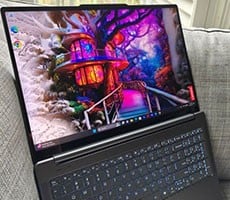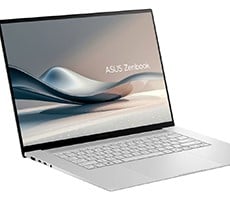Lenovo Yoga Pro 9i Laptop Review: Great Performance, Killer Display
ATTO Disk Benchmark
We began our testing with a quick sanity check using ATTO’s disk benchmark tool. The Yoga Pro 9i is equipped with a M.2 2280 SK Hynix PCIe4 NVMe SSD and ATTO measures read/write bandwidth and IOPS across different data sizes.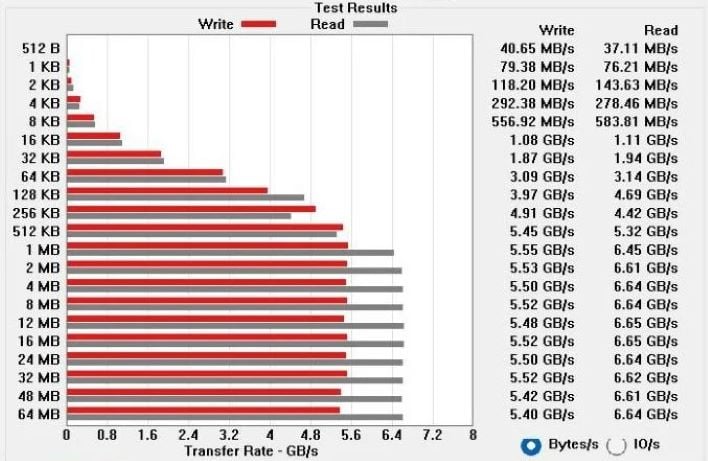
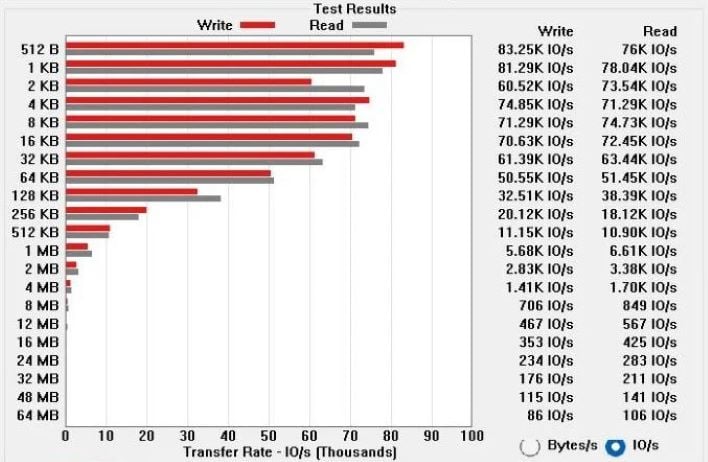
The 1TB SSD in the Yoga Pro 9i offers strong sequential performance, in-line with some top PCIe Gen 4 drives. In practice, in the real-world, this machine feels snappy and responsive and its SSD performance is more than adequate.
Speedometer 2.0 Browser Benchmark
According to BrowserBench's website, its Speedometer browser test "measures the responsiveness of Web applications. It uses demo web applications to simulate user actions such as adding to-do items." Using the latest Google Chrome, multiple samples were taken using the test, which loads and runs a few sample web apps from ToDoMVC.com which uses popular web development frameworks such as Ember.js, Angular, React, and JavaScript.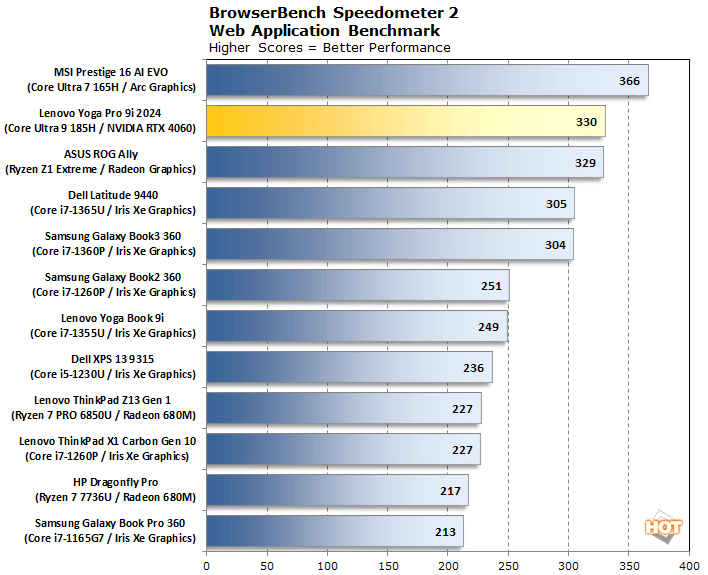
Shockingly here, the Yoga Pro 9i fell behind even a Core Ultra 7 machine like the MSI Prestige 16. That said, regular users will likely never face problems while browsing the web or using web apps (which this test is a good barometer of). In fact, overall browsing was quick and responsive throughout our time with this 16-inch Lenovo laptop.
Cinebench Rendering Benchmarks
Here we utilized Maxon's popular Cinebench R23 3D rendering benchmark tool to run single- and multi-thread tests on the Yoga Pro 9i.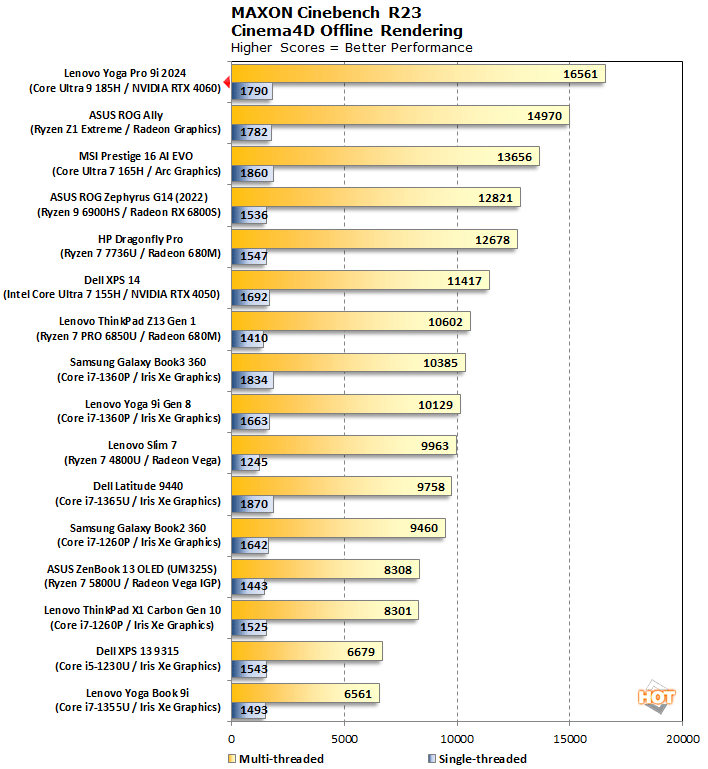
For a high-end Core Ultra 9 machine, it's interesting that in single-thread processes the Lenovo Yoga Pro 9i isn't at the top. In this case, it trails behind a Core Ultra 7-powered MSI Prestige 16. Nonetheless, the newer Intel chipset makes up for it with multi-threaded scores that are nothing to be ashamed of. These kinds of repeatable results bode well for heavy graphics and media rendering workflows.
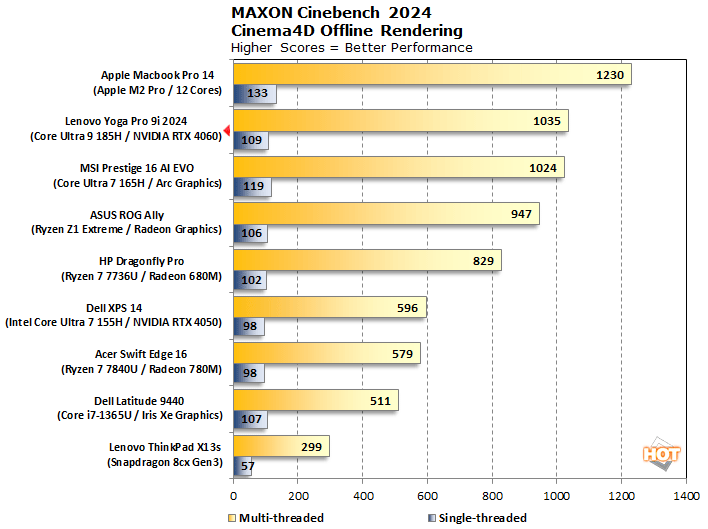
As a follow-up, we ran the newer Cinebench 2024. Again, the Lenovo narrowly looses out to the Core Ultra 7-equipped MSI in single-threaded numbers, plus barely piping it out in the multi-threaded score. Intel Meteor Lake machines like this still have a way to go to catch up to Apple's M chips, however.
Geekbench Benchmarks
Geekbench is commonly used to simulate real world processing workloads in image processing, compression and decompression, and particle physics scenarios, among others. Both single- and multi-core workloads were tested using Geekbench 5.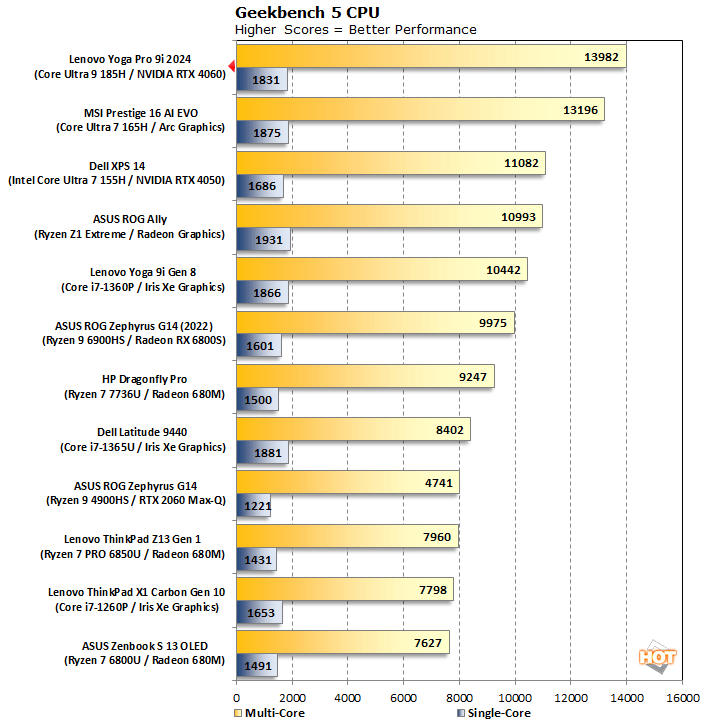
This is a very strong showing from the Yoga Pro 9i, even if the scores doesn't necessarily blow the socks off the competition. Still, the Geekbench test puts the Lenovo in first place for multi-core and second place in single-core.
PCMark 10 Whole System Benchmarks
PCMark 10 uses a mix of real-world applications and simulated workloads to establish how well a given system performs productivity tasks, including image and video editing, web browsing, and OpenOffice document editing. Systems listed below are sorted by their overall PCMark score (in green).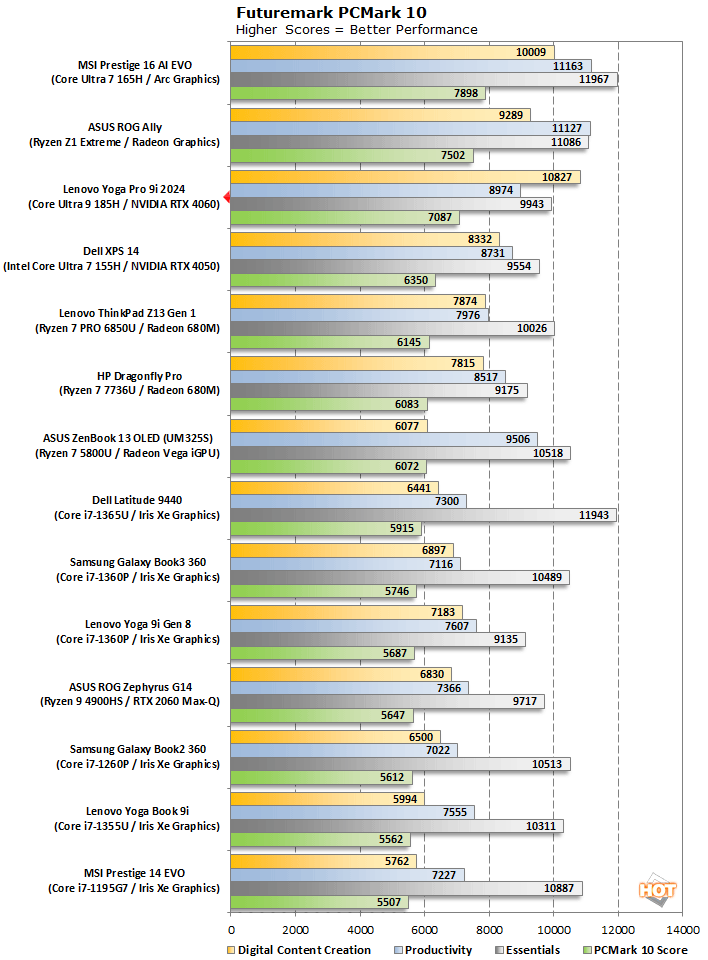
What really dragged the overall score down for the Lenovo are the low productivity and essentials test scores. This is odd considering the Intel Core Ultra 7 155H-equipped Dell XPS 14 scored about the same.
3DMark Graphics and CPU Tests
To give the RTX 4060 GPU (laptop version) a little warm up, we used the tried-and-true 3DMark Firestrike Extreme to see what kind of numbers the Pro 9i would produce. No doubt, we knew results would be strong, but it's always surprising to see a laptop performing this well, practically trouncing the competition.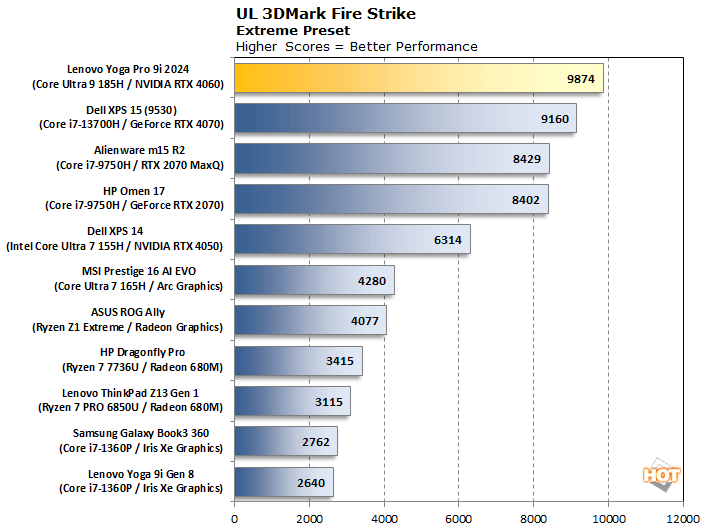
Middle Earth: Shadow Of War Benchmark
Next stop is Middle Earth: Shadow of War, a 2017 AAA title that still stands as one of the best games in the Lord of the Rings franchise. As with other tests, the resolution was set to 1920 x 1080 with visuals set to High. The frame rates here are the average reported by the built-in benchmark.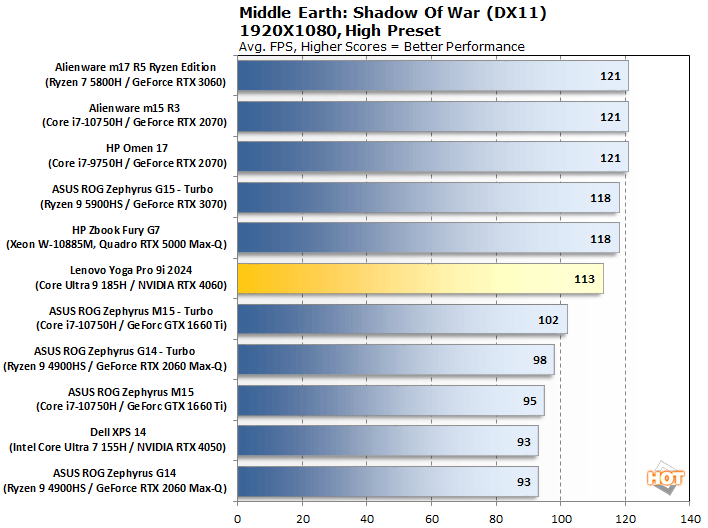
Gears Tactics Performance
Another game we benchmark with and then pitch against other systems is Gear Tactics, a turn-based strategy game from the Gears of War universe. The roughly 2.5 minute-long benchmark is run on low, medium, and high presets at 1080p.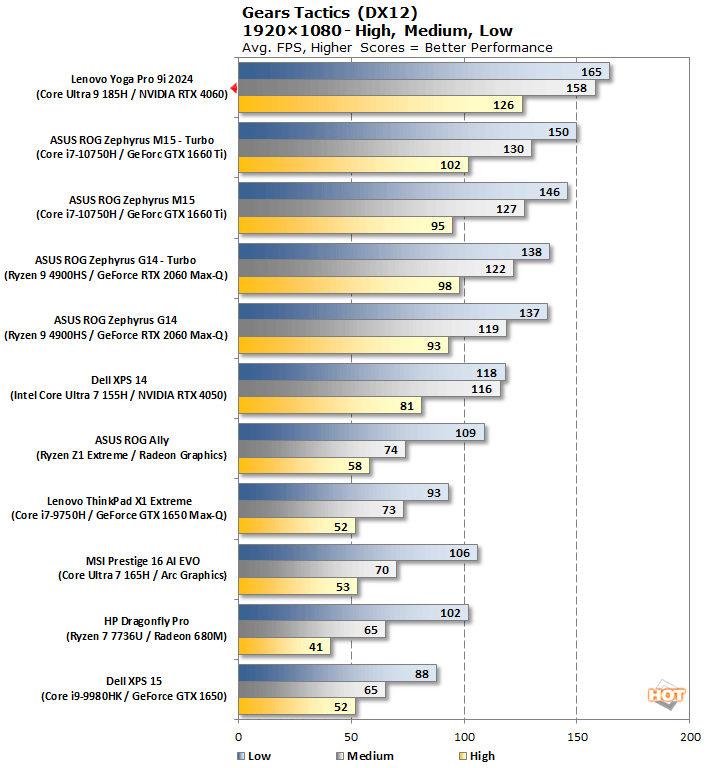
The Lenovo Yoga Pro 9i repeatedly blasted through this test with ease, though you're probably going to need a bit more muscle if you want to experience playable frame rates at the machine's native 3.2K display resolution. Then again, the Yoga Pro 9i isn't a gaming laptop per se either.

